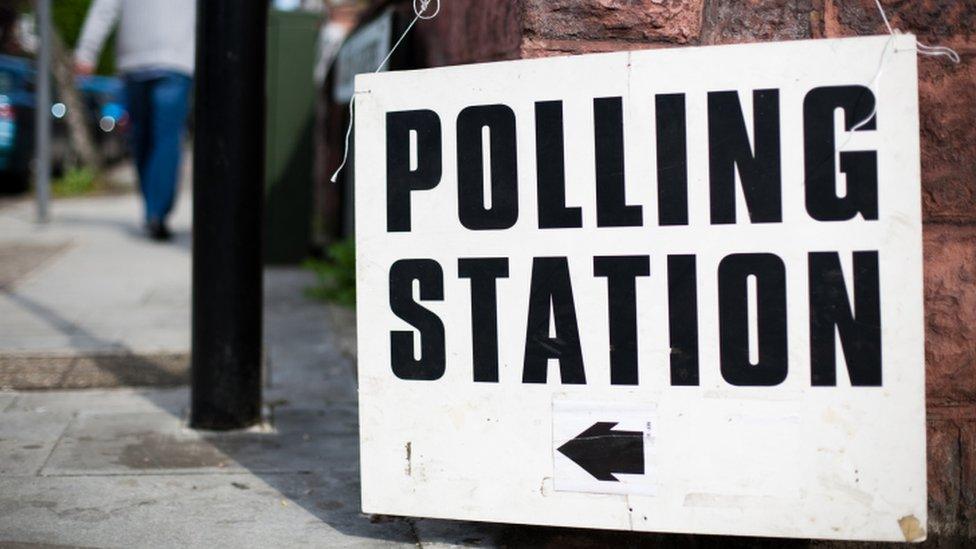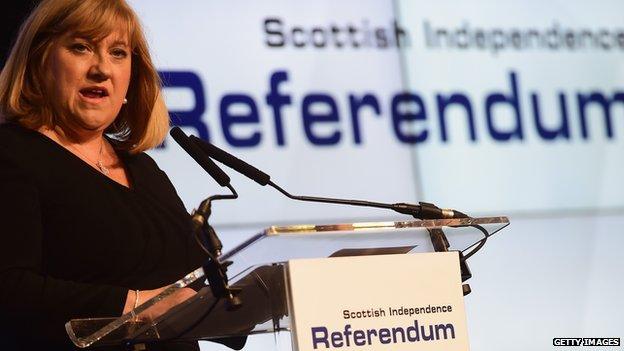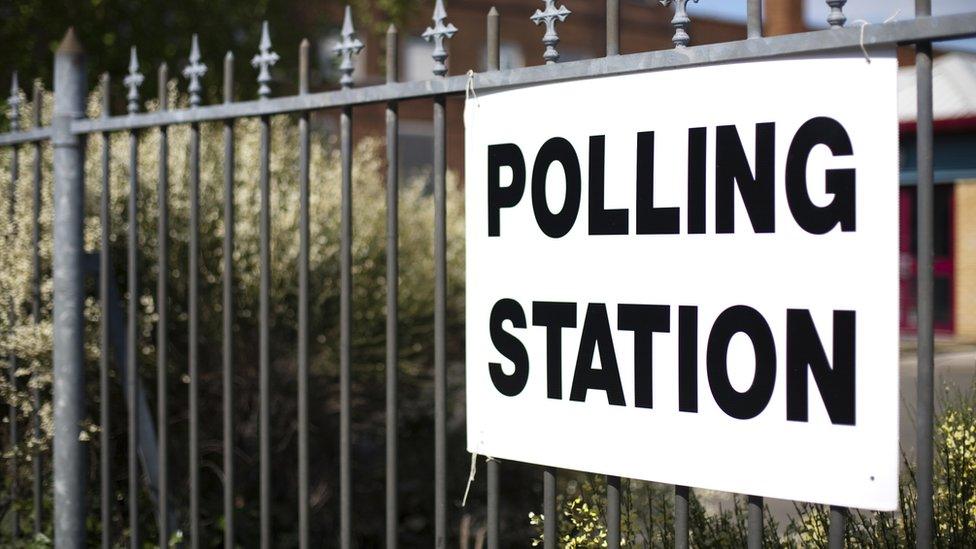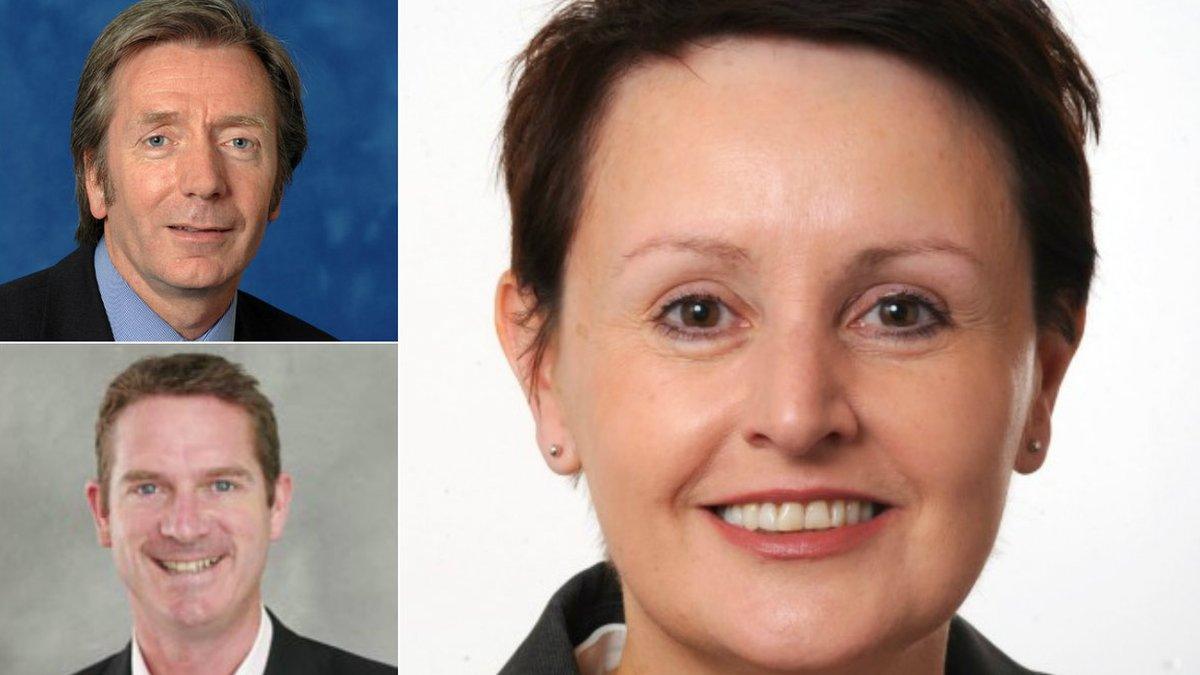Call to scrap election returning officers' payments
- Published

Returning Officers are responsible for ensuring elections are administered effectively in their constituencies
Council chief executives should not be paid extra to act as returning officers in elections, according to the Scottish Conservatives.
The call came after three local authority heads gave evidence at an inquiry into the practice.
Mary Pitcaithly, who was chief counting officer during the independence referendum, told a Holyrood committee: "We are not in it for the money."
MSP Graham Simpson said: "It's time for these eye-watering payments to stop."
Almost £500,000 was available to share between Scotland's 32 returning officers for their work on two polls this year.
The Scottish Parliament's local government and communities committee is examining whether the payments are still valid.
Mr Simpson, a Tory MSP, said: "The public purse has to be protected, and these payments are made to those who are very often on six-figure salaries as it is.
"This duty should simply be part of the job, not something that brings with it a one-off bonus worth tens of thousands of pounds.
"It's not the fault of the council chiefs themselves, it's the legislation which must be addressed, and that's exactly what we have to do."
Earlier Ms Pitcaithly told the inquiry that she worked long hours during the "demanding" run up to an election.
In addition to her salary as Falkirk Council chief executive, she was able to claim up to £13,903 for her work running the Scottish Parliament election and the EU referendum earlier this year.
She said she shared her fee with her depute returning officer.
Ms Pitcaithly, who is also convenor of the Electoral Management Board for Scotland, added: "People do not work in elections for the money. We are not in it for the money.
"We are committed as local authority officers at every level to making sure we man elections that, at the end of the day, we can all be proud of."
She gave evidence to the committee alongside the head of Glasgow City Council, Annemarie O'Donnell, and Malcolm Burr, the chair of the Society of Local Authority Chief Executives (SOLACE) Scotland.

Mary Pitcaithly was chief counting officer during the Scottish independence referendum
Ms O'Donnell told MSPs she received the highest payment of any returning officer in Scotland - more than £54,000 this year alone.
She said: "I wouldn't want to disclose what I do with my fee but what I would advise the committee is that a number of people and organisations do benefit from the returning officer fee."
The official, who earns a salary of about £160,000 in her role as council chief, said the returning officer role came with "significant pressure" and "significant responsibilities".
"No-one goes into these elections to make a career, but it can end a career," she said. "We have to deliver these elections with precision, accuracy and if we fail to do that then our reputations and our careers are jeopardised as a consequence of that."
'Very strange'
Malcolm Burr, who is also chief executive of Comhairle nan Eilean Siar, the Western Isles Council, told the committee that public confidence in elections is high in Scotland and he is not aware of significant concern over the payments.
He said Solace would be "very happy" to contribute to a review.
He added: "Any system benefits from review. There are certain aspects of it, for example the expectation that depute returning officers, who play a key role in the delivery of elections, are remunerated from the returning officer's fee - as it were of our charity - is a very strange and somewhat antediluvian way of looking at remuneration of public servants."
He told MSPs he had "on occasion" shared his fee with depute returning officers.
Mr Burr was eligible to claim for £6,375 for running two polls in the Western Isles this year.


What is a returning officer?
Returning Officers are responsible for ensuring that elections are administered effectively in their constituencies.
They are personally liable for the conduct of polls and could face court action if they breach their official duty.
As well as providing polling stations, managing the postal voting process, verifying and counting votes, they must declare the result.
Find more information on the Electoral Commission's website, external.

- Published23 November 2016

- Published5 May 2016
